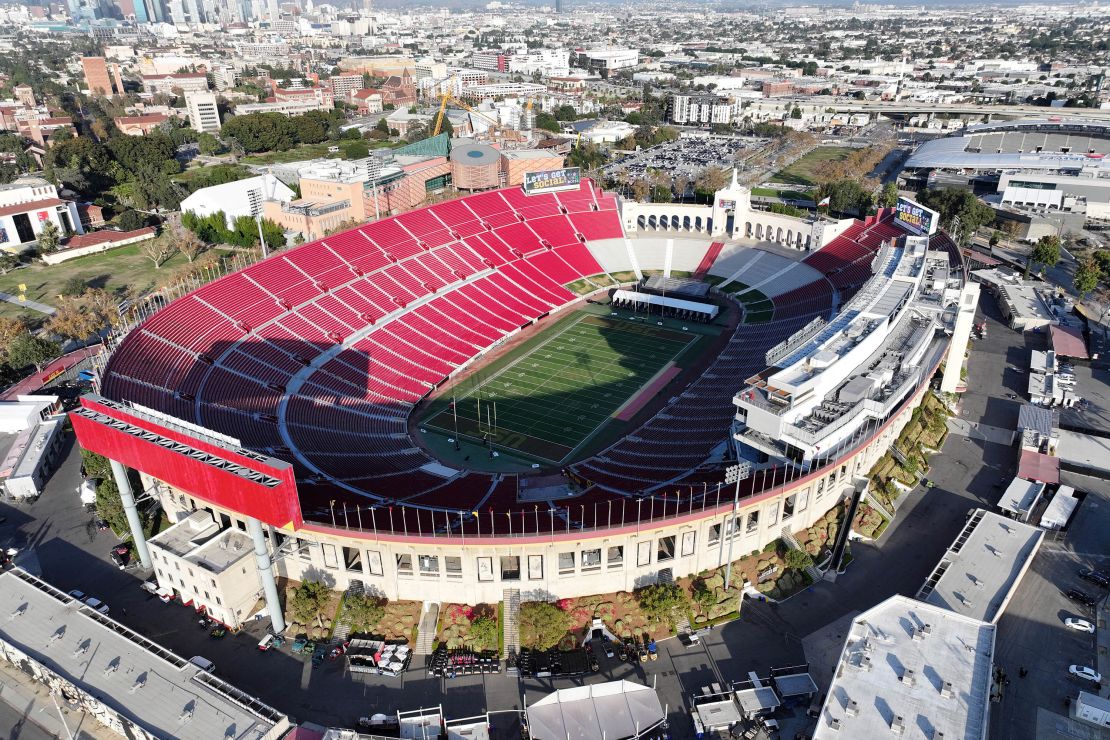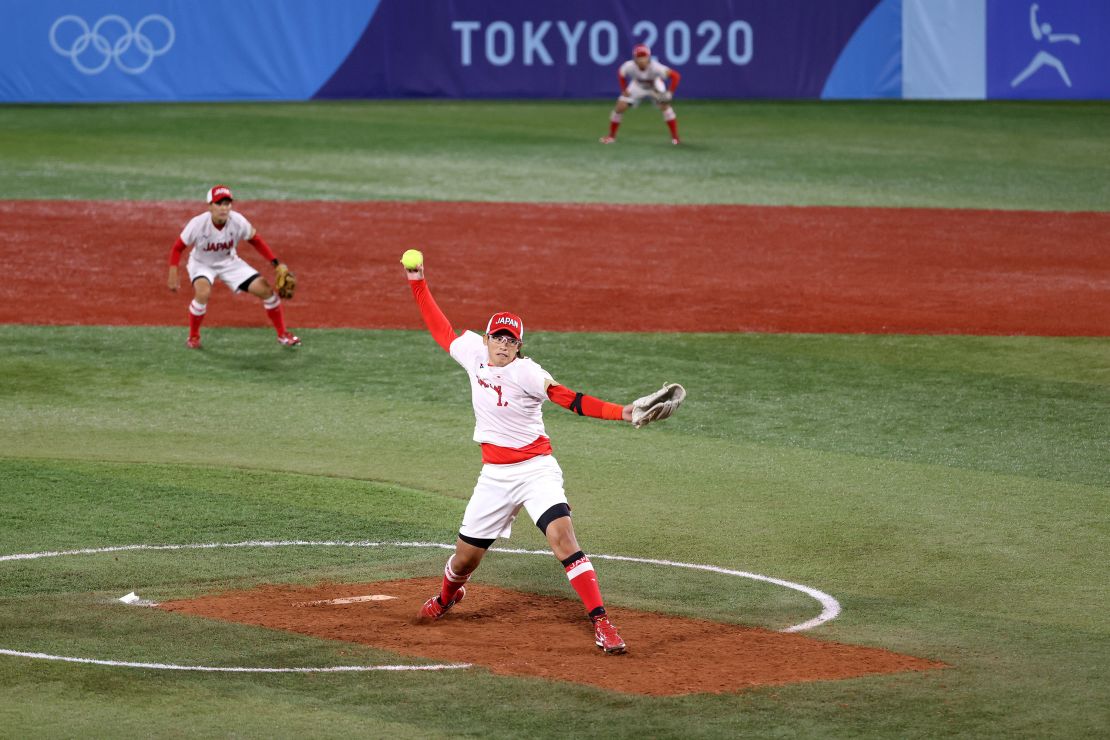As the Olympic flame heads for Los Angeles, what can we expect from the 2028 Games?

The Paris Games are over, the Olympic flame that hung suspended in a cauldron above the Jardins de Tuileries extinguished, and the Olympic flag handed over to Los Angeles for the 2028 Games.
Already, organizers have offered a glimpse of the spirit of a Games set in Tinseltown, sprinkling the handover with some Hollywood stardust as Tom Cruise leapt from the roof of the Stade de France in the closing ceremony to take the Olympic flag out of the stadium on the back of a motorbike, while Billie Eilish, Snoop Dogg and the Red Hot Chili Peppers also performed.
Now only a mere 1,432 days away, the LA Olympics begins on July 14, 2028 with its opening ceremony and will run until July 30. The Paralympic Games will begin on August 15 and close on August 27.
So, what can we expect from the Los Angeles Olympic Games in four years’ time?
Where are the venues?
Olympic venues will be spread across the sprawling city, taking in some of its most iconic sights, and the action will spill out into Oklahoma City, halfway across the country, too.
Los Angeles has already hosted two Olympics, in 1932 and 1984, leaving enough infrastructure in place that there won’t be any new permanent venues built for 2028, and athletes will be housed at the University of California, Los Angeles (UCLA), instead of a purpose-built Olympic Village.
Although it isn’t yet clear exactly where each and every sport will take place in Los Angeles, organizers have already announced some of their biggest venues.
The arches of the LA Memorial Coliseum will preside over the Olympics, becoming the first ever stadium to host three Olympic opening ceremonies and athletics competitions. The Arena in downtown Los Angeles, normally home to the LA Lakers and LA Sparks basketball teams, will transform into a venue for the gymnastics, while the beautiful 1932 Pool in Exposition Park, constructed for the Olympics that year, will host the diving.

Organizers are planning to hold the swimming events in a temporary pool at the SoFi Stadium in Inglewood, normally used to host NFL games. With such a big capacity, the stadium will seat 38,000 spectators even with a 50-meter pool inside it, making it the biggest-ever Olympic swimming venue.
Several miles of LA’s coastline will be put to use as Olympic venues, too – the Long Beach Waterfront will host the marathon swimming and triathlon while the sailing will take place at Belmont Shore in Long Beach.
Oklahoma City will provide a supporting role to Los Angeles with its Whitewater Center and Softball Park hosting the canoe slalom and softball.
Will the LA Games really be ‘car-free?’
On Sunday, LA mayor Karen Bass reiterated her goal of hosting a “car-free” Olympics, which, given that Los Angeles is widely known as the traffic capital of the world, raised a few eyebrows.
“We’re a very car-dependent city but it means that if you are going to attend any of the sports venues, you’re going to have to take public transportation,” Bass told CNN’s Amara Walker.
“We’ve been building out our system, but we’re also going to need a lot of buses, thousands of buses from neighboring cities and states to help us deliver that.”
Bass told reporters that the city will use 3,000 buses loaned from across the United States, encourage remote working during the games to reduce traffic, and invest in the public transportation system to achieve this goal.
What new sports will be in the program?
Sports like surfing, climbing and skateboarding have proven popular additions to the Olympics in recent years, injecting new energy into the Games.
Five more new sports will be added to the Olympic program in LA – flag football, baseball/softball, cricket, lacrosse and squash.

The five have been chosen since they are “in line with the American sports culture and will showcase iconic American sports to the world, while bringing international sports to the United States,” IOC President Thomas Bach said in a statement released in October 2023. “Their inclusion will allow the Olympic Movement to engage with new athlete and fan communities in the US and globally,” he added.
It will mark a first-ever Olympic appearance for flag football – a version of American football in which players remove flags from their opponents’ belt instead of tackling them – and squash, which has spent years lobbying to be included in the Games.
Cricket was played at the Paris Olympics in 1900, while lacrosse featured at St. Louis 1904 and London 1908, but both have fallen out of the Olympic program since then. Baseball and softball have floated in and out of the Olympics, most recently featuring in Tokyo 202.
New events, as well as sports, have been added into the Olympic program, too. Coastal rowing will see athletes sprint across the sand before using specialized boats to navigate through waves and seek to cross the finish line first.
Which sports are leaving the Olympics?
Breaking was a hotly anticipated new sport in Paris, and went viral when Australian b-girl Raygun produced a much-memed performance, but it has been already dropped from the Olympic program.
The decision was made before breaking made its debut in Paris, and it won’t be returning to the Olympics, at least for now.

Meanwhile, boxing has not yet been officially included in the Olympic program due to the IOC’s decision in June 2023 to withdraw recognition of the International Boxing Association (IBA), the sport’s now-discredited governing body, following a years-long feud. Any decision regarding boxing’s future at the Olympics has been “put on hold,” the IOC said in October 2023.
And the modern pentathlon – a rather odd event in which athletes traditionally compete in fencing, showjumping, a 200-meter freestyle swim and a laser run that combines running and shooting – will take on a new complexion in LA.
Showjumping will be replaced by obstacle racing, a decision that kept the sport in the Olympics, the IOC said in a statement, following a widespread outcry during Tokyo 2020 when Germany’s modern pentathlon coach, Kim Raisner, was disqualified for hitting a horse.
The final program of events will be finalised sometime between now and the first quarter of 2025, according to the IOC.
_________________________________________________
Words in This Story
suspended - v. Temporarily stopped or paused.
cauldron – n. A large, round pot, often used metaphorically to describe the Olympic flame container.
glimpse – n. A brief or quick look.
handover – n. The act of passing something from one person or group to another.
stardust – n. A magical or dreamlike quality, often associated with celebrities or fame.
venues – n. Places where events or activities take place.
sprawling – adj. Spread out over a large area in an untidy or irregular way.
iconic – adj. Widely recognized and well-established, often symbolic of something significant.
infrastructure – n. The basic physical and organizational structures needed for the operation of a society or enterprise.
permanent – adj. Lasting or intended to last indefinitely without change.
arches – n. Curved structures that span an opening, often found in architecture.
coliseum – n. A large stadium or arena, historically used for sports or public events.
preside – v. To be in charge of a meeting, event, or ceremony.
capacity – n. The maximum amount that something can contain or the ability to do something.
spectators – n. People who watch an event, especially a sports event.
coastline – n. The land along the edge of the sea or ocean.
triathlon – n. A multi-sport race with three continuous and sequential endurance races, typically swimming, cycling, and running.
canoe slalom – n. A competitive sport where athletes navigate a canoe or kayak through a course of gates on river rapids.
reiterated – v. Said again or repeated for emphasis.
traffic capital – n. The main area or city where there is a high amount of traffic, often used metaphorically.
remote – adj. Far away or distant from the main centers of population.
injecting – v. Introducing something new or different into a situation, often to add energy or change.
lacrosse– n. A team sport where players use a stick with a net to catch, carry, and pass a small ball.
cricket – n. A bat-and-ball game played between two teams, popular in countries like England, Australia, and India.
squash – n. A racket sport played by two or four players in a four-walled court.
inclusion – n. The act of including or being included within a group or structure.
lobbying – n. The act of trying to influence the decisions of government officials or other authorities.
featured – v. Showcased or highlighted as a prominent part of something.
specialized – adj. Designed for a specific purpose or activity.
navigate – v. To plan and direct the course of a journey, or to move through something in a careful way.
breaking – n. A form of street dance, also known as breakdancing
hotly – adv. In a way that is passionate, intense, or full of strong emotions.
anticipated – adj. Expected or looked forward to.
viral – adj. Quickly and widely spread, especially online.
much-memed – adj. Frequently turned into memes and shared online.
debut – n/v. The first public appearance of something or someone.
IOC – n. Acronym for the International Olympic Committee, the governing body of the Olympic Games.
recognition – n. The acknowledgment or identification of something as valid or important.
now-discredited – adj. Once considered credible but now no longer trusted or believed.
feud – n. A prolonged and bitter dispute or conflict.
put on hold – phrase. Temporarily paused or delayed.
pentathlon – n. An athletic event consisting of five different sports or disciplines.
compete – v. To take part in a contest or competition.
showjumping – n. An equestrian event where riders on horses jump over obstacles.
complexion – n. The natural color, texture, and appearance of the skin, especially of the face, or the general character or nature of something.
obstacle – n. Something that blocks the way or hinders progress.
outcry – n. A strong public protest or expression of disapproval.
disqualified – v. Declared ineligible to participate due to breaking the rules.
https://www.cnn.com/2024/08/12/sport/los-angeles-olympic-games-2028-paris-spt-intl-scli